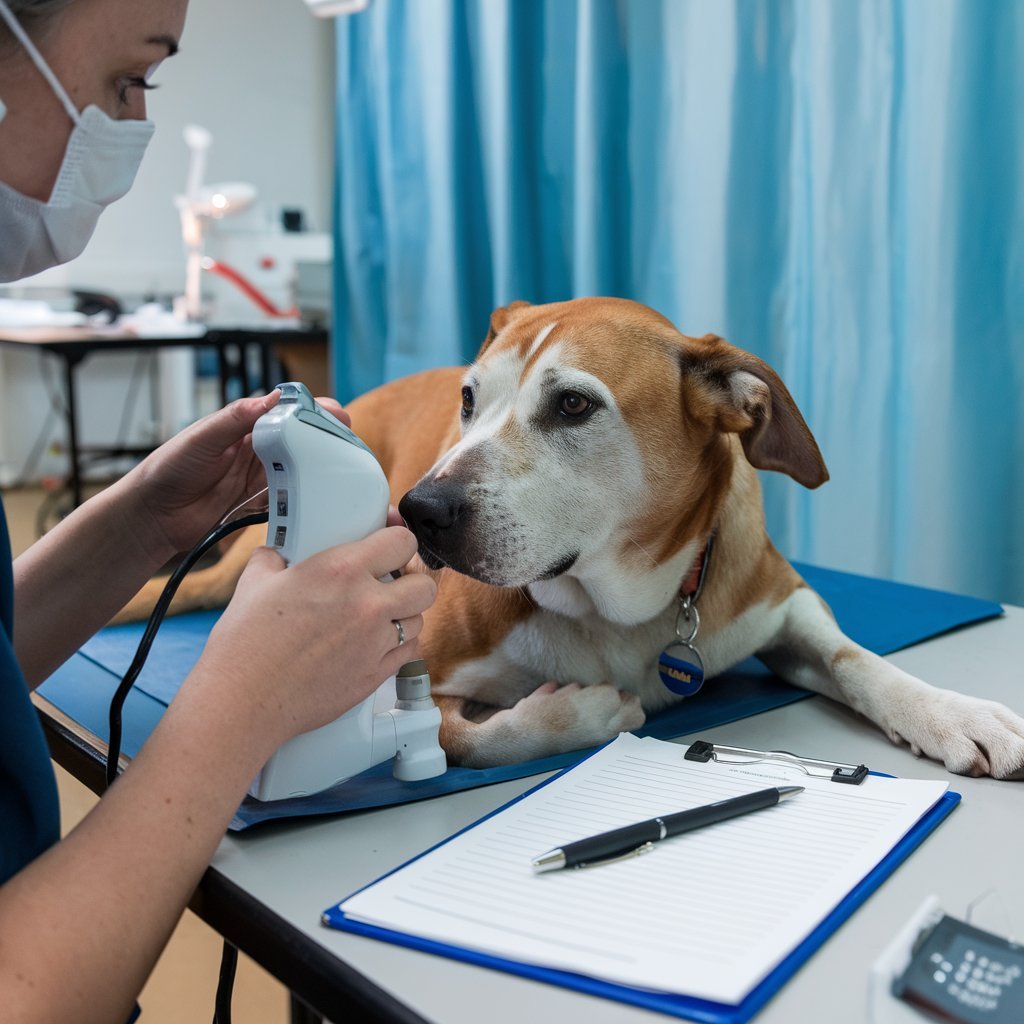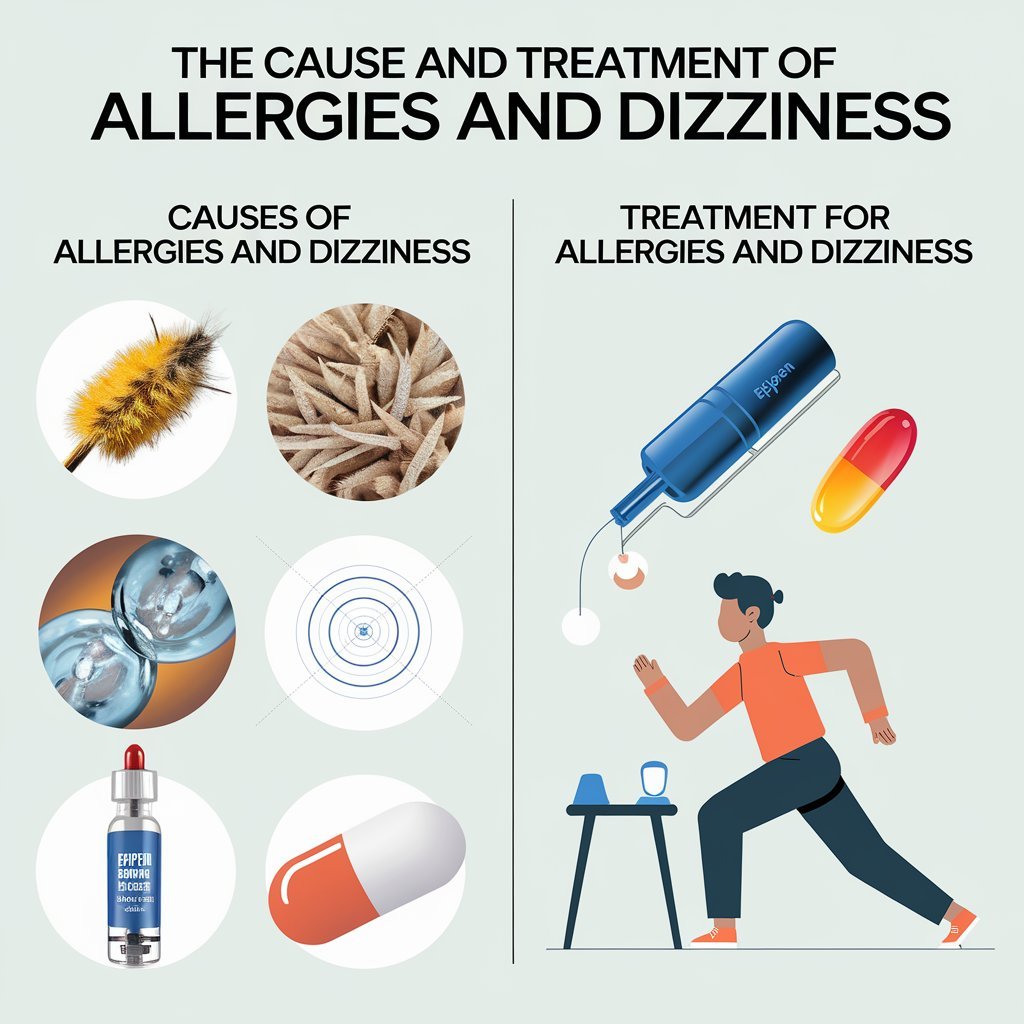What are Dog Allergies?
Dog allergies may result in itching, skin issues, gastrointestinal problems, and discomfort. If your dog scratches all the time, develops red skin, or experiences constant ear infections, an allergy could be the reason. It’s essential to find out which allergens they are for the welfare of your dog and their quality of life.
How Do Vets Test for Allergies in Dogs?
Vets use some methods to determine what your dog is allergic to. The most common types of allergy tests are skin and blood tests.

Blood Test for Allergic Dogs
Blood tests measure the amount of antibodies that react to allergens. They can detect food allergies, environmental allergens, and more. Blood tests are convenient and require a mere blood sample from your dog.
Dog Skin Allergy Test
A skin test, or intradermal allergy test, involves injecting tiny amounts of suspected allergens into the skin to see how your dog’s body reacts. It is a very accurate way of diagnosing environmental allergies.
Intradermal Allergy Testing for Dogs
This test is usually performed by veterinary dermatologists. Tiny amounts of allergens are placed under the dog’s skin, and responses are monitored. It is most commonly used on dogs with severe environmental allergies.
Dog Food Allergy Test: Identifying Dietary Allergens
Food allergies occur in many dogs, causing gastrointestinal upset, skin disease, and recurrent ear infections.
Best Dog Allergy Test for Food Sensitivities
There are various methods of food allergy testing, such as elimination diets and laboratory test kits.
At-Home Allergy Test for Dogs
Some at-home kits can test for allergies from saliva, blood, or hair samples. Although convenient, they might not be as precise as tests done in the vet clinic.

Allergy Test Cost for Dogs
Allergy testing cost for dogs will depend on the test type and area.
Allergy Test Type
Average Cost Range
| Skin Allergy Test | $250 – $350 |
| Intradermal Allergy Testing | $250 – $500 |
| At-Home Allergy Test Kit | $100 – $300 |
| Food and Environmental Allergy Test | $200 – $600 |
| Skin Allergy Test | $250 – $350 |
Are Dog Allergy Tests Accurate?
The accuracy of the allergy tests depends on the kind of test that is being done. Blood tests and intradermal tests are considered to be accurate for environmental allergies. Food allergy tests, however, may require an elimination diet for confirmation.
DNA My Dog Allergy Test
DNA-based allergy tests have the potential to provide information regarding potential allergies and sensitivities. The tests are useful but have to be used with veterinary consultation.
Dog Allergy Testing in Human Beings
Some people suffer allergic reactions to dogs. Dog allergy testing in human beings involves skin prick tests or blood tests to test responses to pet dander, saliva, or fur.
Food and Environmental Allergy Testing in Canines
Both contact and food allergens can influence dogs. Allergy testing determines individual causes, and pet owners can then successfully manage their dog’s allergies.
Treatment for Allergic Dogs
Once allergies have been diagnosed, treatment options can relieve symptoms and improve your dog’s quality of life.
- Medications to Cure Allergies in Dogs
- Antihistamines: Reduce itching and inflammation.
- Corticosteroids: Severe allergic reaction treatment.
- Immunotherapy: Shots that desensitize your dog to allergens over time.
- Omega-3 Supplements: Promote healthy skin and reduce allergic responses.
Dietary Change and Hypoallergenic Diets
Vets can recommend a hypoallergenic diet that can solve food allergies. This at times involves switching to a new protein source or ahydrolyzed protein diet.

Prevention of Allergies in Dogs
Prevention comes through reduced exposure to allergens and a healthy life for your dog.
Tips on Reducing Allergens
Regular Grooming: Bathing your dog with hypoallergenic shampoo helps to remove allergens from the skin.
Clean Living Environment: Frequent cleaning of bedding, floors, and furniture reduces dust and allergens.
Avoiding Allergen Exposure: Awareness and avoidance of allergens can prevent reactions.
Conclusion
Dog allergy tests are an important aspect of treating and diagnosing allergies. By understanding the different testing methods, costs, and treatments, pet owners can intervene in advance and make their dogs healthier and more comfortable. If you have reason to believe your dog is allergic, consult a veterinarian for information on what action to take.
Frequently Asked Questions (FAQs)
How do I determine if my dog has allergies?
Normal signs of allergies in dogs include an excess of scratching, inflamed or red skin, ear infection, vomiting, diarrhea, and paw licking.
What is the optimal allergy test for dogs?
Intradermal allergy testing is the most reliable for food allergies. Environmental allergies are best diagnosed with intradermal testing. The best testing for food allergies is an elimination diet.
Can I test my dog for allergies at home?
Yes, you can purchase in-home allergy test kits. They are not always as accurate as those done by a veterinarian, though.
How expensive is allergy testing for dogs?
Pricing varies by test type and is between $100 and $600. Intradermal and blood tests by veterinarians are more expensive but more accurate.
How do I treat my dog’s allergies?
Treatment includes antihistamines, corticosteroids, immunotherapy, dietary change, and omega-3 supplements. A veterinarian must be consulted for appropriate treatment.
Can a dog develop an allergy later in life?
Yes, dogs can develop an allergy at any stage of their life. Environmental and food allergies can occur as they age or as their environment changes.
Are allergy shots effective for dogs?
Yes, allergy shots (immunotherapy) can be a successful long-term solution for dogs with bad environmental allergies.
What foods usually make dogs allergic?
Common food allergens include beef, dairy, chicken, wheat, soy, and corn. Elimination dieting may identify food triggers.
Is testing for allergies required in every dog?
No. If your dog is demonstrating symptoms of allergies, testing can confirm the reason for the problem. But if your dog isn’t demonstrating signs of an allergy, testing may be unnecessary.




